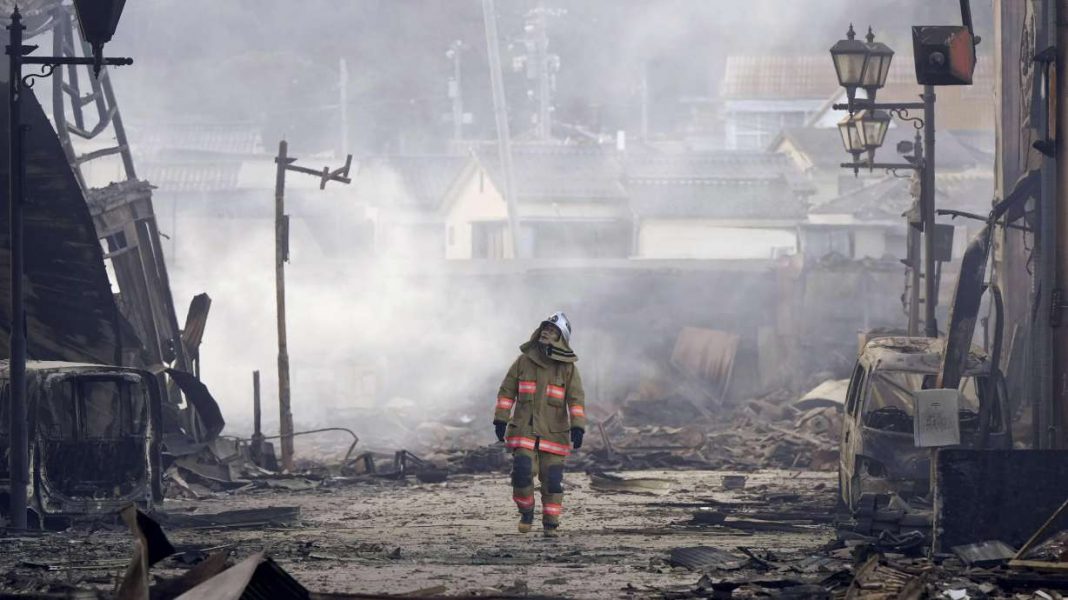SUZU, Japan – Japanese rescue workers and canine units are working tirelessly to search through the rubble in the aftermath of the devastating earthquakes that have struck western Japan. The situation is becoming increasingly urgent as the region braces for bitter cold and heavy rain, making it a race against time to find survivors and provide aid to those in need.
The earthquakes, with the most powerful one measuring at a magnitude of 7.6, have already claimed the lives of at least 73 people, with 15 others officially listed as missing and possibly trapped under collapsed buildings. The aftershocks that continue to shake Ishikawa prefecture and nearby areas are adding to the challenges faced by rescue teams.
Prime Minister Fumio Kishida emphasized the critical nature of the first 72 hours after the earthquakes, stating that the prospects for survival greatly diminish after that time. “This is a race against time, and I feel that we are at a critical moment,” he told reporters. “We have received reports that many people are still waiting for rescue under collapsed buildings.”
One survivor, Naomi Gonno, shared her harrowing experience of narrowly escaping her collapsing house with her children, only to find her mother trapped under the debris. The challenges in reaching some communities on the narrow Noto Peninsula have further complicated the rescue efforts, with water, power, and cellphone service still down in some areas.
As the region prepares for heavy rain and plummeting temperatures, there are growing concerns about landslides and further damage to already half-crumbled homes. Relief officials are distributing water, blankets, food, and other supplies, while search dogs, military personnel, and firefighters are working tirelessly to find missing people.
The aftermath of the earthquakes and tsunami has left boats overturned in the sea, roads blocked by mounds of dirt, and flattened homes scattered with debris. The challenges of delivering aid and assessing the damage are further compounded by the winter cold, posing significant health risks to those affected.
As the rescue and relief efforts continue, the people of Japan are coming together to support one another in the face of this tragedy. The road to recovery will be long, but the resilience and determination of the affected communities will undoubtedly prevail.




Disagree Tragic events like these highlight the importance of preparedness and swift response. Sending thoughts and prayers to those affected in Japan. #PrayForJapan
Disagree This is a devastating tragedy, but it’s inspiring to see the dedication and resilience of the rescue teams as they work tirelessly to save lives in Japan.
Good punctuation and grammar, disagree: It’s heartbreaking to see the destruction caused by the quakes in Japan. Hopefully, the rescuers can find survivors and provide them with the help they need.